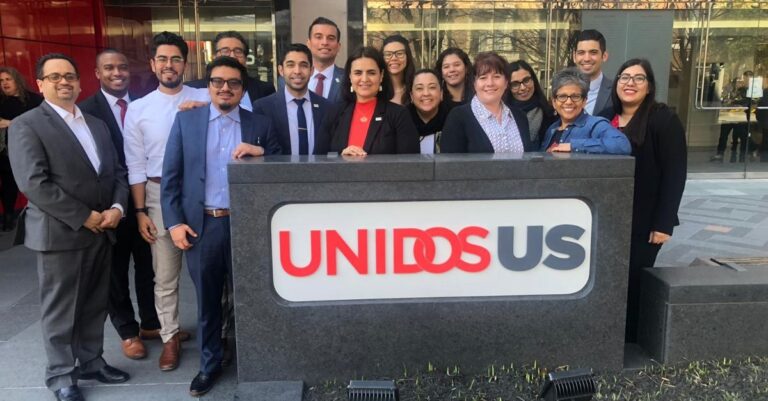Growing up, I experienced what I thought was a normal childhood. My breakfasts sometimes consisted of tamales, eggs and beans, or scrambled eggs with chorizo. I’d wake up to Vicente Fernandez blaring over the speakers on Sunday mornings, signaling that it was time to get up to clean. I really didn’t think much of it. That is, I didn’t think much of my experiences until I went to college. That’s when I realized how unique my experiences were. I was one of the 8% of Latino Harvard students, and that fact was immediately clear to me. To say I experienced culture shock would be an understatement. At times, I felt completely out of place. One of my new friends and I realized that many other Latino male students were probably feeling the same way. This led us to create an affinity group for Latino male students at Harvard. We called it the Latino Men’s Collective, and it served as a lifeline for many of us while we worked to navigate the various challenges that came along with attending such an elite institution.
What is an Affinity Group?
An affinity group, also known as an identity-based or interest-based group, is a group of individuals who share a common identity, experience, or interest. These groups can provide a sense of community and support for members and can be a powerful force for positive change and social justice.
Our Affinity Group Role Models
My friend and I didn’t about starting the Latino Men’s Collective out of the blue. We were fortunate enough to be exposed to a number of other successful affinity groups on campus. Fuerza Latina (a group for Latino male and female students), the Black Men’s Forum (a group for black male students), and Latinas Unidas (a group for Latina female students) were just a few of the amazing role model affinity groups that we had around us.
Benefits of an Affinity Group
One of the key benefits of affinity groups is that they can provide a sense of belonging and community for members. When individuals are part of a group that shares their identity or experiences, they can feel seen and heard, and can find support and understanding from others who have similar backgrounds or challenges. This can be especially important for individuals who may feel marginalized or isolated in their communities or workplaces.
Affinity groups can also be a powerful force for positive change and social justice. By bringing together individuals who share a common identity or experience, affinity groups can raise awareness and advocate for issues that are important to their members. They can also provide a platform for members to share their stories and experiences, and can help to build solidarity and support among diverse communities.
In addition, affinity groups can be a source of professional development and networking opportunities for members. By connecting with others who share their interests or identities, members can learn from each other, share resources and information, and support each other’s professional and personal growth. This can be especially important for individuals who may not have access to other networks or opportunities for professional development.
The Power of the Latino Men’s Collective
We held a conference for high school students, hosted dances for fundraisers, participated in countless events. We hosted weekly meetings, provided mentorship opportunities, supported one another’s academic goals. Everybody was welcome in our group. We wanted to make sure that others like us had a place where they belonged.
Affinity Groups Extend Beyond College
Affinity groups can help you feel seen and heard because you are surrounded by people like you. For some people, they are fortunate enough to find solidarity with these groups when they are in high school, while others are only exposed to affinity groups when they arrive at college. Others only come across affinity groups when they have entered the workforce.
These affinity groups, the ones you join when you are in the workforce, can be some of the most impactful groups in your life. While affinity groups in high school and college can provide you with a great sense of self worth and a feeling of belonging, groups you join while you’re in the workforce can do that and more.
They can provide you with professional development opportunities, a supportive network, and a platform to voice your experiences and advocate for change. Moreover, they can serve as a source of mentorship and career guidance, helping you advance in your field and achieve your professional goals. Joining a workplace affinity group can not only enhance your career but also provide a sense of community and belonging in a diverse and often competitive work environment.
Workforce Affinity Group Examples
In my career, I’ve been a part of and have worked with a number of different affinity groups. Here’s a breakdown of a few of them.
- Emerging Leaders Institute (ELI) – Greater Houston Hispanic Chamber of Commerce (GHHCC): One year, I applied and got accepted into ELI. At first, I thought it was a short summer professional development program, but I quickly learned it was so much more. It has been an incredible network of like-minded individuals, Latinos and non-Latinos alike, committed to supporting one another in their efforts to succeed.
- Association of Latino Professionals For America (ALPFA): When I was a school principal, I partnered with ALPFA to regularly host their members on my campus for speaking engagements. ALPFA members shared their stories with my students to help my students see themselves in the ALPFA members who came by.
- National Institute of Latino School Leaders (NILSL) – UnidosUS: In the summer of 2019, I applied to become a member of NILSL and it was one of the most powerful experiences I’ve had in my career. I came together with Latino leaders from around the country to engage in professional development on how we can leverage our experiences to promote Latino causes in our communities.
Those three groups are examples of just a small fraction of the affinity groups that are available to those in the workforce.
Steps to Join an Affinity Group
Now you know about all the great things an affinity group can do for you. So, it’s time to review what you can do to join one.
- Determine what type of group you are interested in: affinity groups can be based on shared interests, identities, causes, etc.
- Research available options: check online resources, community centers, or university groups. Ask friends, colleagues, or community members for recommendations.
- Reach out to the group: if the group has a website or social media presence, reach out to the administrators or members for more information.
- Attend a meeting or event: this will give you the opportunity to meet members and learn about the group’s goals and activities.
- Get involved: actively participate in group activities and events. Volunteer to take on responsibilities or lead initiatives. The more involved you are, the more you will benefit from the group.
- Stay connected: keep in touch with group members and continue participating in group activities to build relationships and strengthen the group’s community.
Your Future with an Affinity Group
If you join an affinity group, your life could take a different turn in the future. You would be surrounded by like-minded individuals who share similar interests and beliefs as you. This community would provide a supportive and encouraging environment where you can grow, learn and explore new things. You would have access to resources and opportunities that you may not have had before. With the support and guidance of the group, you could achieve your goals and dreams and lead a fulfilling life. Being a part of an affinity group can open up new doors for you, both personally and professionally. So, if you’re looking for a supportive community to help you grow, joining an affinity group might just be the right decision for you.
Time to Commit
- How has being part of an affinity group impacted your sense of belonging and community, and your professional and personal growth?
- Is there an affinity group you have been thinking about joining? What’s held you back?



